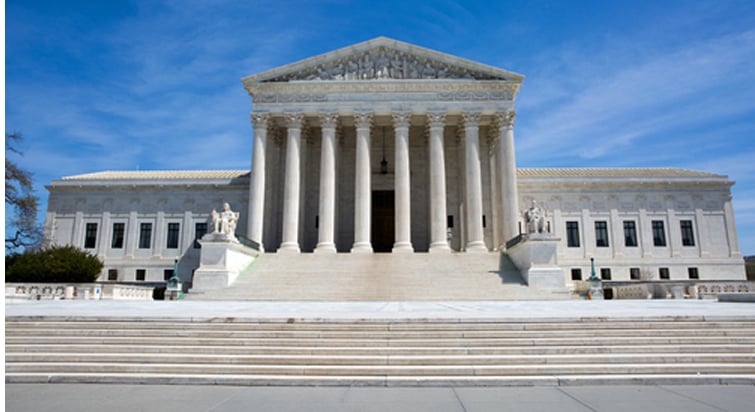SCOTUS upholds funding scheme for consumer agency; ‘the framers would be shocked,’ Alito dissent says

A federal law authorizing the Consumer Financial Protection Bureau to draw funding from the Federal Reserve System does not violate the appropriations clause, the U.S. Supreme Court ruled Thursday. (Image from Shutterstock)
A federal law authorizing the Consumer Financial Protection Bureau to draw funding from the Federal Reserve System does not violate the appropriations clause, the U.S. Supreme Court ruled Thursday.
Justice Clarence Thomas wrote the majority opinion upholding the funding mechanism for the agency. Two fellow conservatives, Justices Samuel Alito and Neil Gorsuch, dissented.
The high court ruled in a challenge by payday lenders that objected to regulations focusing on high-interest consumer loans.
The 7-2 decision reversed the 5th U.S. Circuit Court of Appeals at New Orleans, which found a violation of the appropriations clause and separation-of-powers principles enshrined in the clause.
The CFPB is funded by the Federal Reserve, which is funded from fees on banks, rather than congressional appropriations.
Each year, the CFPB requests an amount of money determined to be reasonably necessary to carry out the bureau’s functions. The Federal Reserve must then transfer that amount to the bureau, as long as it doesn’t exceed 12% of the Federal Reserve’s total operating expenses.
Most federal agencies have to ask Congress for funding each year. The CFPB funding arrangement is intended to insulate the agency from politics.
The appropriations clause says: “No money shall be drawn from the Treasury but in consequence of appropriations made by law.”
“Under the appropriations clause,” Thomas wrote for the majority, “an appropriation is simply a law that authorizes expenditures from a specified source of public money for designated purposes. The statute that provides the bureau’s funding meets these requirements. We therefore conclude that the bureau’s funding mechanism does not violate the appropriations clause.”
Alito wrote a dissent that was joined by Gorsuch.
“Unfortunately, today’s decision turns the appropriations clause into a minor vestige,” Alito wrote. “The court upholds a novel statutory scheme under which the powerful Consumer Financial Protection Bureau (CFPB) may bankroll its own agenda without any congressional control or oversight. … The framers would be shocked, even horrified, by this scheme.”
The case is Consumer Financial Protection Bureau v. Community Financial Services Association of America.
Hat tip to SCOTUSblog.
Write a letter to the editor, share a story tip or update, or report an error.



